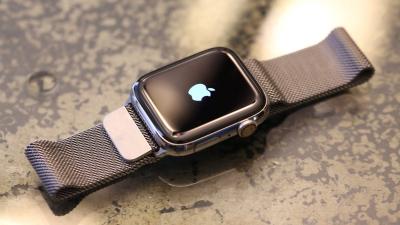Apple started developing microLED displays for wearable devices years ago, first aiming to launch the first product in 2023. The project was delayed several times, as the cost of production for microLED displays was too high for Apple, to the point where it was suggested Apple's goal is to launch the first microLED watch in 2027.
One of Apple's main microLED partners is ams-Osram, that is building a $850 Million 8-inch microLED epiwafer factory in Malaysia. Yesterday ams-Osram announced that its "cornerstone project" (it did not name Apple specifically) got unexpectedly cancelled. This triggered ams-Osram to re-assess its microLED strategy. As a first estimate ams-Osram believes it will have impairment charges of $650-$900 million and it will also likely to cancel or delay some of its investments in Malaysia (which may actually improve the company's cashflow in the next two years).
Apple's move to cancel its microLED project may have wide implications for the microLED industry. While Apple is only one of many microLED developers, it has a strong effect on the display industry's psychology - and other companies may perhaps now reconsider their microLED strategy and goals. Apple was one of the first companies to look into microLEDs, and following the company's LuxVue acquisition in 2014, it caused many other companies to focus on microLEDs.
It is clear that moving microLEDs from prototype production and pilot production to full scale commercial production is extremely challenging, on both the cost perspective, and the performance perspective. Our own estimates, and one backed by MicroLED Association members, is that while microLEDs have high promise and are likely to be the display technology to replace OLEDs, it will likely take at least 5-10 years for the technology to mature in most display segments.
The MicroLED Industry Association will be hosting a meetup next week, originally planned to discuss its microLED standards effort, but will also use the meeting to conduct an open discussion around Apple's move, the implications to the industry - and how companies should align their strategy going forward.
These will be interesting times for microLED developers and supply chain companies, as the effect of Apple's move will ripple through the industry. There will be risks - but also high rewards for companies that take advantage of recent industry changes. We believe our platforms such as the MicroLED Association and MicroLED-Connect will prove vital for companies in the near future.
This news could be positive for the OLED industry, as companies may shift R&D and investments back into OLED technologies as the timeline of microLED adoption may prove to be longer than expected.


